Without perhaps being fully aware of it, we are constantly surrounded by useful chemicals in our daily activities. It is not only in our immediate environment that chemical transformations of substances take place; the chemical reactions of different molecules occur in the atmosphere, in nature, in plants and in all living organisms, including ourselves. In this article, we want to take a look at how chemistry is used in everyday life.
If we do not want to leave the convenience of modern life and go back to sometime in the middle of the last century, when people walked only as far as they could walk, when the more affluent travelled further afield on horseback, and when the median age of the population was a few decades shorter than it is today, there is only one thing left to do: to have a solid understanding of the context of the world in which we live.
This is true, without exception, for chemistry. The general public’s fear of this subject will recede into the background when we thoroughly understand it, when we are aware of how to handle chemical products properly and safely, and how to use them to our advantage, and also how to recycle them through chemical processes when we no longer need them.
We should remind ourselves of those areas of our lives that we would have to do without chemicals, chemical processes and products, and consider at the same time whether we are handling chemicals in such a way that we are not causing any serious damage to the environment or to our own health.
Let us ask ourselves a few questions about the state of chemistry around us and seek adequate answers. Stay tuned!
What is chemistry?
For some people chemistry is a fearsome subject at school, for others it is a potential source of danger, and still more of us do not even realize how the quality of our lives today depends on chemistry. The general embarrassment and fear of chemistry, widely promoted by most of the media today, comes primarily from ignorance of the subject itself.
This state of affairs, which is sometimes referred to as chemophobia, may have its roots in imperfect school curricula. Often, our children are introduced to complex ideas about the structure of the electron clouds around the atomic nucleus of elements of which the teachers themselves probably have a vague idea of the true nature. This leaves less time to talk about the properties of the various substances that each of us comes across in everyday life, a kind of ‘commodity science’. Stay tuned as we explore how chemistry is used in everyday life.
Do we need chemicals and chemical products?
Today’s lifestyle, length and quality of our lives are dependent on a huge number of products that we would not even have without chemical processes. For examples, we don’t have to go far: all of us take for granted the existence of pharmacies and drugstores, where products of very sophisticated chemical processes are stored for our use; we consider as normal the means of transport – cars, buses, planes and also agricultural or construction machinery, which without motor fuels, lubricants, coolants, brake fluids, battery cartridges and hydraulic oils would not move an inch.
For instance, a pharmacy is actually a warehouse of very complex chemicals that have been formulated into a pharmaceutical form to help us when we are at our worst. At the same time, these are very complex chemical products that have been subjected to a series of chemical transformations in their production, in processes with many often very complex apparatuses – reactors, heat exchangers, distillation columns, and so on.
There are many products that we use every day that we definitely cannot do without today and that required the use of very sophisticated materials, also manufactured by chemical processes. For example, the production of a mobile phone, a computer, a CD player, soap, toothpaste and a toothbrush, sports equipment, a car, building materials, textiles – and we could go on and on – is unimaginable without chemical components. The chemical support of agricultural and food production is a separate chapter.
Of course, the most basic form of food is drinking water. Water is produced by a number of large and small water companies, where its quality is checked by sensitive chemical and biological analyses. Foreign substances are removed by filtration, and chlorine and sometimes ozone are used to remove harmful pathogens. Obviously, it is also essential to produce poisonous chlorine or ozone for this purpose.
Intensive agricultural activities are necessary to ensure sufficient food for the population, and this cannot be done without the massive production of inorganic fertilizers. It is impossible to maintain our quality of life at the level to which we have grown used to without them and without all kinds of plant and crop protection products – pesticides and various growth stimulants.
It is exceedingly clear that, for example, without protective chemical sprays and weed killers, far more workers would have to be employed in agricultural production than is currently the case. In the United States, for example, only a small percentage of the working-age population is employed in agriculture, while domestic agricultural production supplies a decisive part of our food consumption. Stay tuned as we explore how chemistry is used in everyday life.
Are we using chemicals responsibly?
Chemicals are often talked about mainly in the context of waste, emissions and various pollutants. But only chemists are able to analyze such substances and suggest ways to turn them into something useful, e.g. according to the slogan “raw materials are rubbish – the result is a gem”, or how to wisely dispose of them according to the saying “where to go with it”.
This concerns both gaseous exhalates and, obviously, liquid or solid waste. Nowadays, for example, all new cars are equipped with a catalytic converter, which drastically reduces harmful exhaust emissions. We have become used to waste sorting in our households, which is an essential requirement for recycling and reusing it as a secondary raw material.
But liquid wastewater, be it municipal or industrial, is a different topic. Of course, it is clear that virtually all the potable water brought into our homes is transformed here into sewage, which needs to be treated by physical, chemical and biotechnological processes to such a quality that it can again be discharged into nature. Likewise, process water and waste water must be managed in chemical plants.
Test tube or chemical reactor?
As everyone can probably see, chemicals, their beneficial properties, and the processes for their production must be identified, investigated, tested, and then used to our advantage. When we consider that, if each one of ourselves consumes a chemical product in a year – be it acylpyrine, soap or petrol – even if it is only 10 tablets, 1 kilogram or 1,000 litres, then the quantities of these products required for the 333 million people of our country are very large indeed and have to be produced somewhere and in some facility.
Chemistry of this scale cannot be conducted in any test tubes, but in complex facilities requiring proper and responsible management, highly skilled operators and the necessary supervision.
Among other things, the economic level of any country is measured by its industrial production, which naturally includes the chemical industry. Doing business in the chemical industry needs to be supported by a legislative framework, strict regulations and clear rules. At the same time, it is vital to evaluate processes leading to the main product of chemical production.
The actual chemical transformation of molecules into the target products can, and usually does, generate by-products in chemical reactors, and therefore there is a part of the equipment in each technology that is aimed at the separation of the resulting mixture. Waste treatment is therefore often unimaginable without further downstream chemical processes.
Some examples are filtration, distillation, absorption, adsorption, extraction, membrane separation, and so on. How such a distillation plant works is well known, for instance, to plum growers, who can separate a delicious drink – slivovitz – from the unpleasant-looking fermented mixture of fruit from all sorts of ‘impurities’.
The chemical processes with increased hazards usually involve multi-step reaction systems. According to published statistical data, processes for the preparation of speciality chemicals, plastics and rubbers, and also the synthesis of basic organic intermediates, pose an increased risk of the possibility of an accident associated with an explosion or fire.
From a chemical point of view, polymerisation, nitration, halogenation and sulphonation of organic compounds with significant heat development in the reaction are risky. The risk of chemical production naturally also increases with increasing capacity.
Also Read:
- Discover 8 Sunken Cities under the Sea
- How to Make Elephant Toothpaste in 7 Steps
- What is Energy in Science?
- 7 Cool Science Experiments for Kids
- 23 Legendary Aircrafts that Made the History of Aviation
- What Is Quantum Physics?
The image of chemistry in the media?
For a relatively long time, we have been witnessing that small groups of our countrymen have the right to speak on behalf of all of us about the harmfulness or danger of chemistry, the chemical industry and its products. These people spread the fear of chemistry, chemophobia, around them, and they also receive a lot of space in the tabloid media.
The campaigns against the chemical manufacturers are often purpose-driven, because there is global competition in this sector of industry too. The risks of chemical processes are being constantly reduced as technical information and a deep understanding of them is gathered. Nevertheless, human failure, as it is often referred to rather euphemistically, can never be 100% prevented.
Statistically, only a very small number of serious accidents occur annually in US directly in chemical production. Of course, we can think of entrusting the control of processes to computer systems; however, then a computer failure or an error in the control program can also have fatal consequences. Lowering the probability of a potential accident, though, is very costly.
One of the ways to help improve the safety of chemical processes is through research programmes focused on the study of improving the safety of chemical processes, increasing the qualifications and expertise of chemical workers, challenging equipment tests, and process attestation and validation tests. Finally, it is also a better teaching of chemistry at all levels of schools, but above all at the relevant vocational schools and faculties of universities.
Chemical products obviously pose a great danger if they are managed by irresponsible, uneducated or untrained people. But even a driver on our roads who, either on a whim or because of some complexity of his own, fails to observe traffic regulations, like speed limits, may cause an accident with a tanker carrying, for example, a dangerous chemical. The black book will then primarily state what environmental or human health damage the accident has created and how ‘dangerous’ the chemical is to us.
In the following, we want to talk about the role of chemistry in human life so we can better understand how chemistry is used in everyday life.
The role of chemistry in human life
Chemistry is more than just a scientific and theoretical discipline. It is one of the most practical sciences. Industry, the service sector and households benefit from its discoveries. Stay tuned as we explore how chemistry is used in everyday life.
Chemistry in the home
Today’s modern family uses a huge number of household chemicals – in the kitchen, bathroom, living room, and bedroom. They help save time, stay healthy, keep clean, create a beautiful interior, grow plants, and maintain cars.
When washing clothes, the active substances react with the dirt, which causes it to be repelled from the fabric. The laundry soap is the usual natural alkali, while the powders are synthetic surfactants. Chemistry is also used to build paints: caustic soda in gouaches, olive oil – in oil varieties and so on.
However, chemistry has also made its mark on the usual activities. When making a cake, they use baking soda. There is a process of dissolving the baking soda and releasing carbon dioxide CO2. It makes its way out and the dough rises.
Chemistry and the human body
Human body is a masterpiece, formed by nature over a long period of time. Inside it, a great many very effective reactions occur that are essential for survival, many with enzymes as catalysts. To enable these important reactions to take place, the body needs to be supplied with nutrients through a balanced diet and enough fluids. It also requires sunlight and, of course, oxygen to a certain extent in order to function optimally. Getting enough exercise in the form of sports helps to maintain the body’s functions in the long term.
Chemistry in the blood
Human blood also has interesting chemical properties: an average adult has about 5 to 6 liters of blood. The blood is absolutely essential for our survival. It serves various functions. Among them, it has a transport function. It transports oxygen to the cells and metabolic products, such as carbon dioxide and urea, are removed from the cells.
In order to do this, the blood needs a constant pH value, which is maintained by buffer systems in the blood. The blood consists mainly of water. There are many ions and gases dissolved in it. In addition, blood also contains solid components, the hematocrit. Among these are the red blood cells (erythrocytes) and the white blood cells (leukocytes) along with the blood platelets (thrombocytes).
The liquid and dissolved components form the blood plasma. A highly important task, namely the transport of oxygen, is carried out by the red blood cells. These erythrocytes contain the red blood pigment hemoglobin.
Chemically, hemoglobin is actually a complex. In its center sits the central ion, the iron(II) ion. It is surrounded by a multidentate ligand, a porphyrin residue. That complex can reversibly bind oxygen and other gases to itself. This means that hemoglobin can bind oxygen to itself and then release it under the right conditions.
Chemistry of vision
The sense of sight is probably the most important sense for us humans. We receive around 80% of all environmental information through this sense. Light enters the eye through the cornea and the lens. The real perception takes place on the retina. This is where rods and cones are located. This is where sensory perception takes place through a chemical reaction.
Vitamin A is important for the visual process. This is the chemical compound retinol. By intramolecular rearrangements it becomes Z-retinal, an aldehyde. The aldehyde then reacts to form rhodopsin, an imine. This forms an isomer by the action of light. This trans-isomer is strongly altered in its geometry. As a result, a nerve impulse is triggered. This represents the sensation of seeing.
Bottom Line
In this article, we tried to explain the importance of chemistry in our lives and give you a more thorough understanding of how chemistry is used in everyday life. If you have any questions about this topic, feel free to ask us in the comments section below.
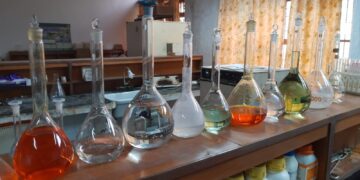








































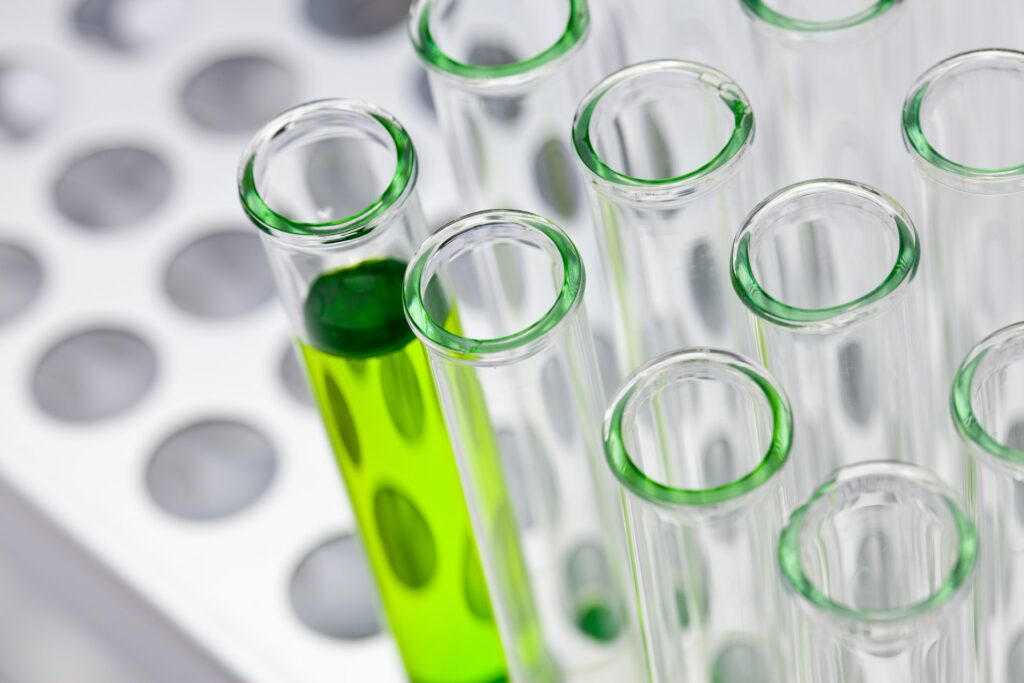
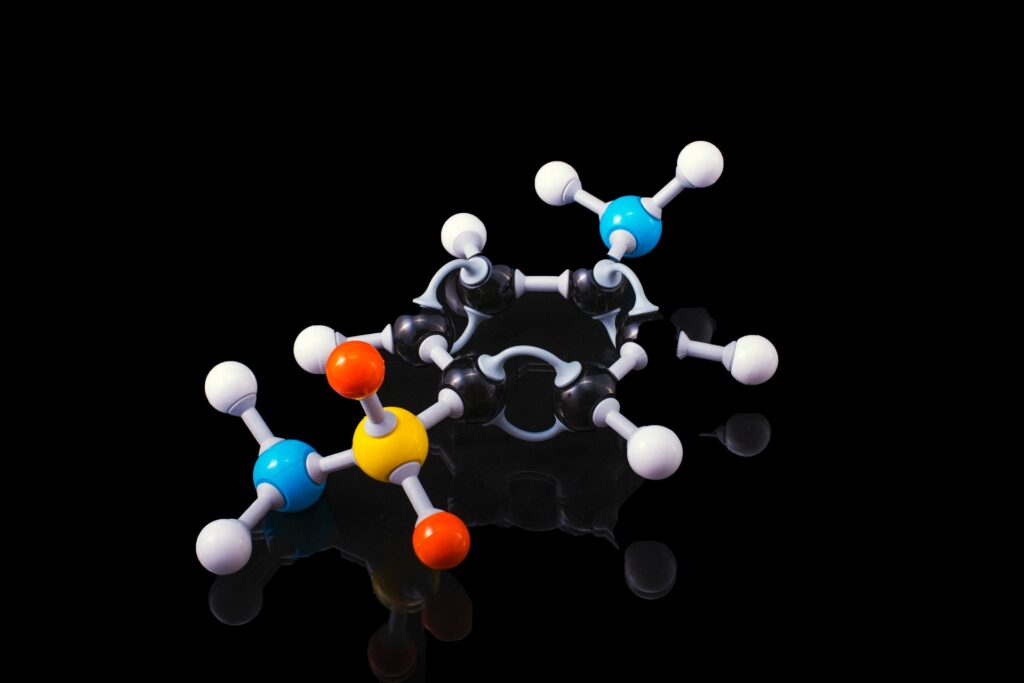
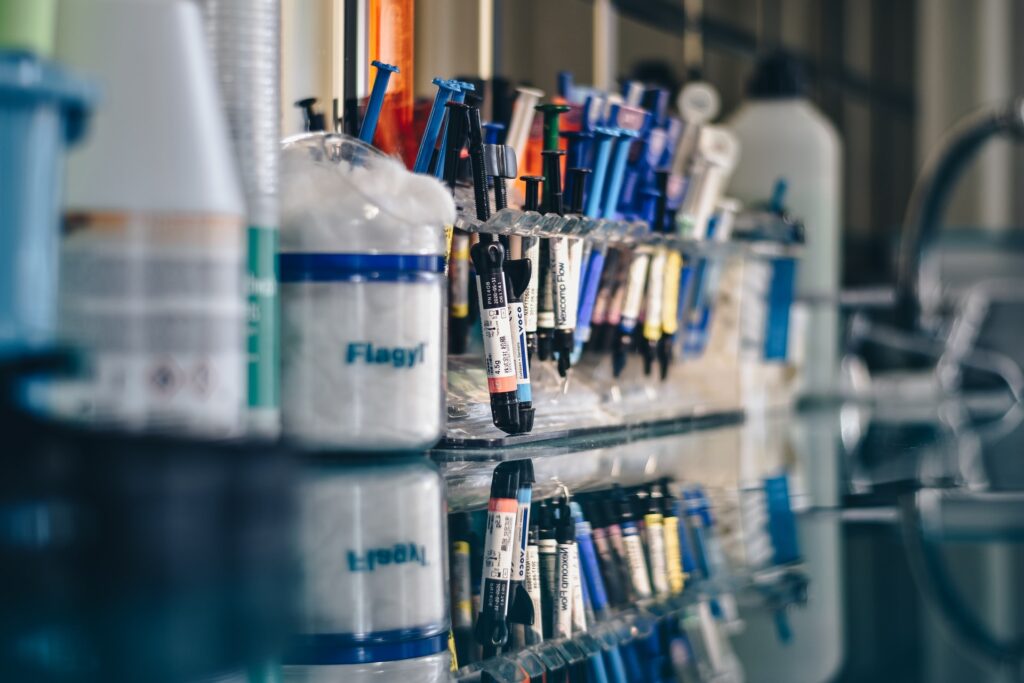
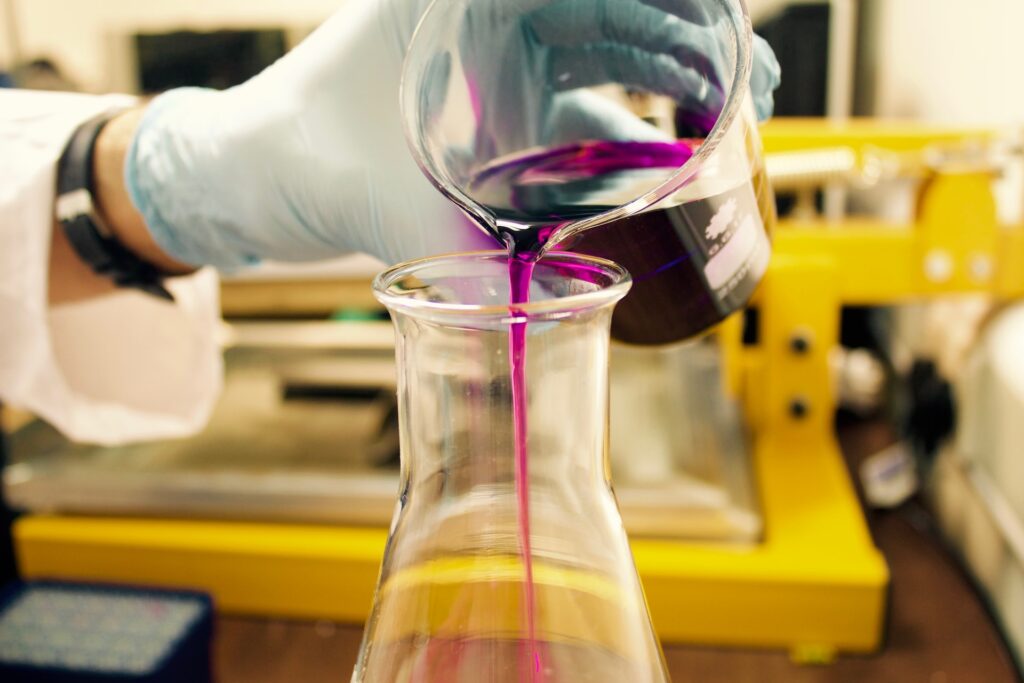
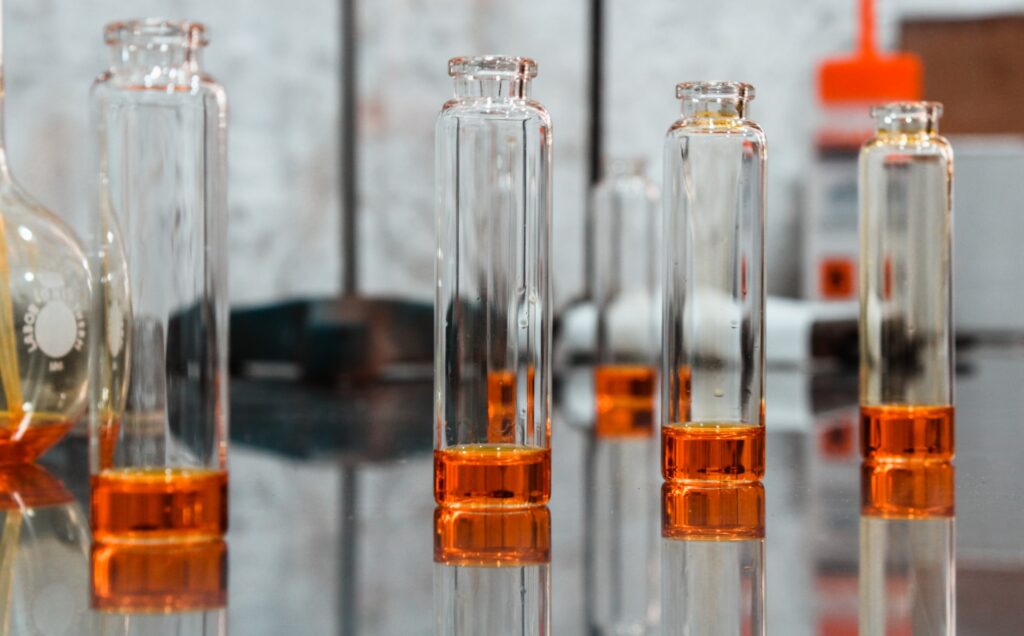









Discussion about this post